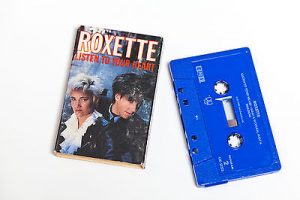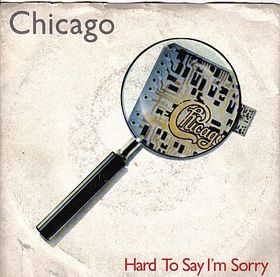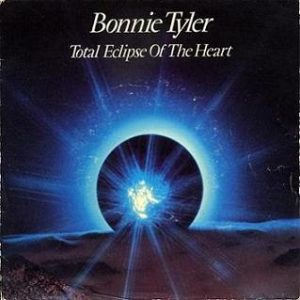Sure, I’m more of a hard rock and metal guy, but do possess the ability to appreciate a classic pop song when I hear it. It’s all about the hook, melody and performance, and in some cases, the music video. Today, I discuss three hits that contain all of the above elements. And in two cases here (NOT Chicago, however), the videos are state-of-the-art.
So here are three #1 pop hits of the 1980s I’ve always liked. All of them have staying power, as aptly demonstrated by continued airplay on adult contemporary radio and/or successful cover versions.
Roxette – Listen To Your Heart
Look Sharp! (1988)
#1 for one week – 10/29/1989 through 11/4/1989

Sometimes the Swedes can do what others can’t. For one thing, they (like Switzerland) were able to stay the hell out of the way of World War II (for the most part). And if they didn’t invent the affordable-chic Euro assemble-it-yourself furniture superstore that also serves meatballs in gravy, they sure did a fine job of stealing and running with the idea. And finally, they produce the only fish that American children will eat.
But as far as music is concerned, it’s entirely another story. Apart from ABBA and Europe (that’s Europe the band, as in “The Final Countdown”), Swedish music has been avoided like husmanskost by those of us in America. But apparently in the underside of Scandinavia, there has always been a thriving music scene. Problem is, most of what happens in Sweden stays in Sweden. (When was the last time you heard E-Type on the American airwaves? Me neither.) Predictably, Roxette, a male/female duo that consisted of songwriter/guitarist/sometimes vocalist Per Gessle and vocalist Marie Fredriksson (and their great hair) were having trouble getting noticed outside of the polar region.
As the story goes, Look Sharp!, Roxette’s second album was brought home by an expat college student, he gave it to a friend at a Midwest radio station and the rest is history. Four hit singles (two #1s, a #2 and a #14) were issued from a platinum-selling disc that the American division of the record company initially declined to release over here, declaring the material “unsuitable” for consumption in the States. So much for the experts being experts.
The third single, a power ballad called “Listen To Your Heart” was a tour de force in both hooks and by the powerhouse vocal performance by Fredriksson. Equally stunning was the Doug Freel-directed video, shot in Sweden’s Borgholm Castle, featuring a barefooted Fredriksson belting it out in a skintight dress. Fortunately, Roxette was able to capitalize on this success, releasing several more high-charting singles over the next couple of years, including two more North American #1 hits.
(Slightly) interesting fact: “Listen To Your Heart” was the first Billboard #1 single NOT released on a 7” vinyl record in America. (Remember the “cassette single?”)
(Slightly less) interesting fact: There are three distinct versions of “Listen” – the original album version, the European single and the remixed American single. And that’s not counting live versions released through the years.
Chicago – Hard To Say I’m Sorry
Chicago 16 (1982)
#1 for two weeks – 9/5/1982 through 9/18/1982

Chicago was one of the biggest rock acts of the 1970s. Between 1967-1977, the original septet released eleven albums (nine studio, one live, one hits), all of which reached the top six (top six?) except for the first one. As far as huge albums and singles go, Chicago was right up there with Paul McCartney, Elton John and the Moody Blues, delivering one of the more impressive winning streaks of the era.
Then things went terribly wrong very quickly. In early 1978, guitarist Terry Kath died of an accidental self-inflicted gunshot, and even though the band carried with a replacement (albeit an ill-fitting replacement), sales dried up. By the time Chicago XIV was released in 1980, it peaked at #71, spawned zero hit singles and was their first album that failed to go gold. Adding injury to insult, the record company then dumped the band. (But it issued Chicago XV – a second hits package – shortly thereafter.) The 1970s were history – it was a great run, but life goes on. Maybe it’s still not too late to go back to school.
So in 1982, a Chicago comeback looked as improbable as a Cubs World Series win. Yet, under the tutelage of star maker David Foster, the predictably-titled Chicago 16 (apparently a new decade meant ditching the roman numerals) charted in the top ten and the first single, “Hard To Say I’m Sorry” climbed to the top of the single charts.
For better or worse, the song changed the course of the band. Chicago went on to a successful second act starting with “Sorry;” The next three years saw five more singles peak in the top 20, until bassist/vocalist Peter Cetera bolted for a solo career in 1985. His absence did nothing to slow down the gravy train; the band continued to release hit singles until the end of the decade before becoming a legacy band for once and for all. History does not record whether “Hard To Say I’m Sorry” benefited from placement in the long-forgotten 1982 film “Summer Lovers.”
Bonnie Tyler – Total Eclipse Of The Heart
Faster Than The Speed Of Night (1983)
#1 for four weeks – 9/25/1983 through 10/22/1983

Prior to 1983, Bonnie Tyler, a Welsh singer with a Rod Stewart-style rasp, was considered a one-hit wonder, based on the country-tinged #3 hit “It’s A Heartache” from 1978. Once the single faded from the airwaves, Tyler seemed to be consigned to the club that included contemporaries Nick Gilder, Debbie Boone and Alicia Bridges.
Fast forward to 1982: Tyler, looking to increase her rock cred (or maybe just to try to make a few bucks), hooked up with songwriter Jim Steinman, who was looking for a new voice to replace the no-longer-relevant Meat Loaf. Plotting for her next album, Steinman dictated that several rock covers be included (Blue Oyster Cult, CCR, Ian Hunter) along with some contemporary offerings and two Steinman originals. The most famous one, “Total Eclipse Of The Heart” clocked in at a lengthy seven minutes (although an edit was released as a single.)
Despite topping the chart, subsequent efforts to continue the momentum proved fleeting. Tyler was only able to graze the top 40 one more time with 1984’s “Holding Out For A Hero” from the “Footloose” soundtrack. But her legacy will always be “Total Eclipse Of The Heart.” Truth of the matter is that I could do without the “turn around, bright eyes” part, but that’s an integral part of the song. Sure, there are plenty of better singers out there than Bonnie Tyler, but when she gets to “I really need you tonight, forever’s gonna start tonight” at the end of the song, she’s singing like her life depends on it. Something that very few can do. An admirable trait.